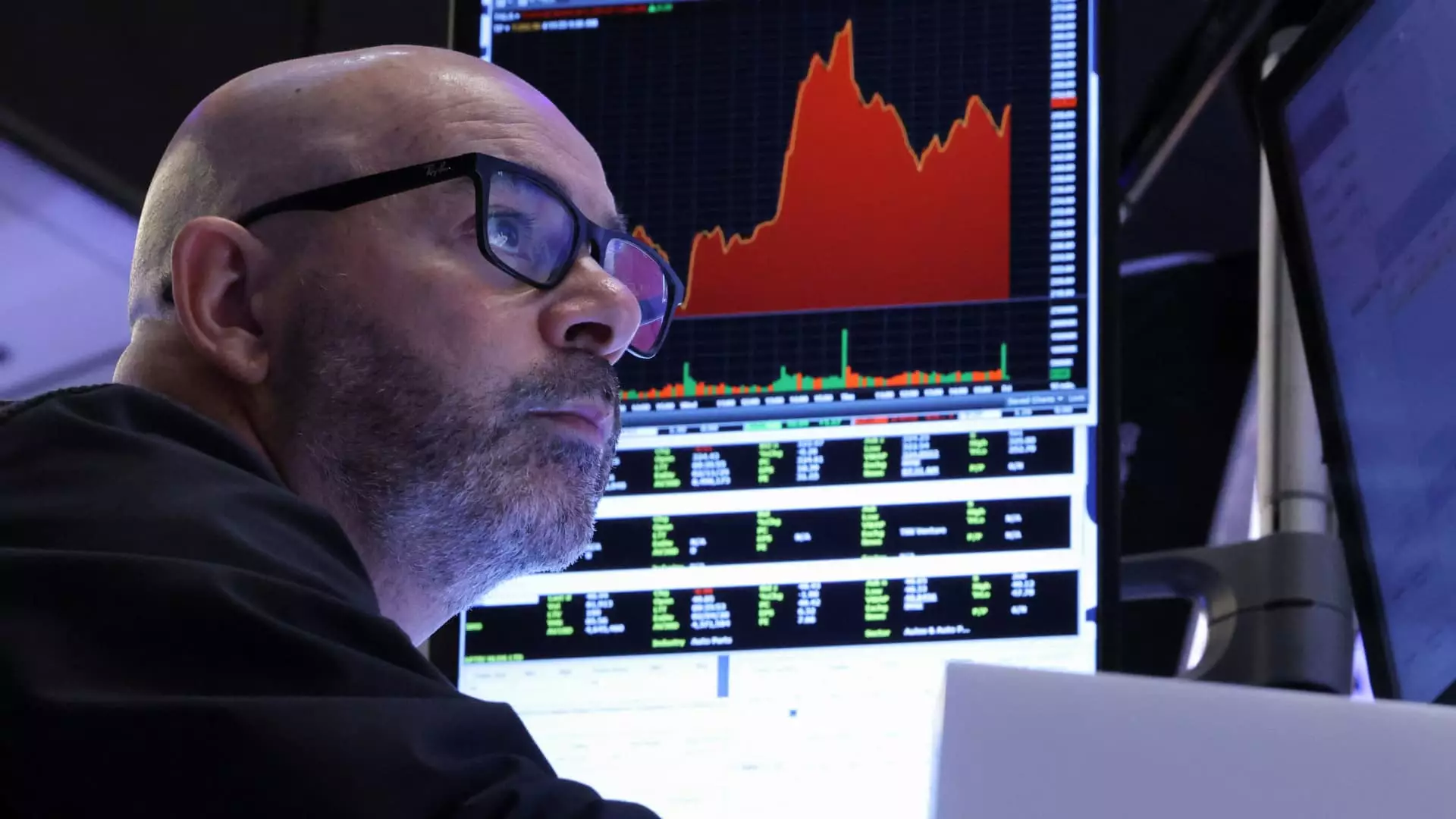The stock market is no stranger to volatility, yet recent developments around zero-day-to-expiration (0DTE) options have turned the dial on market unpredictability, leaving investors to grapple with an anxiety that feels almost palpable. As the popularity of these financial instruments soars, it begs the question: are 0DTE options truly valuable tools for the average investor, or are they merely amplifiers of chaos in an already tumultuous market landscape?
The Mechanics of 0DTE Options
At their core, zero-day options are contracts that expire within the same trading day they are purchased. This brief lifespan has attracted serious interest from investors, both small and large, contributing significantly to the spike in trading volumes. In April alone, trading volumes soared to an astonishing 8.5 million contracts related to the S&P 500—marking a staggering 23% increase from the year’s beginning. These 0DTE options now account for roughly 7% of the total trading volume in U.S. options markets, based on data from JPMorgan.
Proponents of 0DTE trading argue that they present a golden opportunity to capitalize on rapid shifts in market behavior while empowering investors to hedge risks associated with volatile movements. However, the underlying mechanisms of these options unveil a darker side. The impulsive nature of daily trading leads to exaggerated price swings, suggesting that the instruments, rather than stabilizing the market, may instead serve as misplaced matches to a stormy gasoline fire.
The Amplifying Effect on Market Volatility
As veteran investors critique the rise of these options, they highlight the ripple effects contributing to heightened intraday volatility. The recent behavior of the S&P 500, for instance, has been nothing short of breathtaking—with notable swings reminiscent of chaotic market days during the financial crisis of 2008. The S&P’s volatility nearly doubled last week, reaching unsettling rates not seen since those dark days, as measured by options data from Cboe Global Markets.
Jeff Kilburg, the CEO and Chief Investment Officer of KKM Financial, articulated this phenomenon adeptly. He contended that 0DTE options are “like gasoline on a fire,” exaggerating market movements substantially. This amplification is not merely a topic for debate; it is a real concern that places tremendous psychological pressure on investors and disrupts any sense of market stability.
A Tool for Both Speculation and Risk Management
While some view 0DTE options as tools catering to speculative impulses, others argue they have become integral for risk management amid prevailing market uncertainty. Notably, the rise of retail trading platforms like Robinhood has democratized access to these sophisticated tools, allowing a broader swathe of investors to dabble in advanced trading strategies. But with this accessibility comes risk; uninformed or inexperienced investors can easily misjudge market dynamics, leading to catastrophic losses.
Maxwell Grinacoff of UBS illustrates an essential paradox: while 0DTEs can hedge against rapid price fluctuations, their very presence can further destabilize the markets. This creates a cyclical dilemma—investors look to these options to insulate themselves from risk, yet they ultimately contribute to the very volatility they seek to avoid.
The Psychological Impact on Investors
The psychological climate surrounding trading in 0DTE options is worth examining. Investors are increasingly prone to an “edge-of-your-seat” mentality as they react to immediate market stimuli, further exacerbated by social media’s impact on trading decisions. The confluence of fear, FOMO (fear of missing out), and investment anxiety has become a standard emotional state for many traders today.
This intense pressure can lead to rash decision-making and sometimes even depressive responses when their high-stakes gambits do not pay off. Such deteriorating mental health among investors raises ethical concerns regarding the trading strategies and market adjustments that should be implemented to create a healthier environment for trading activities.
In navigating the complexities of modern trading fueled by 0DTE options, investors must critically evaluate their own psychological resilience alongside the tools they choose. The volatility these options introduce has the potential to reshape not only markets but also the very nature of investment strategies moving forward.

